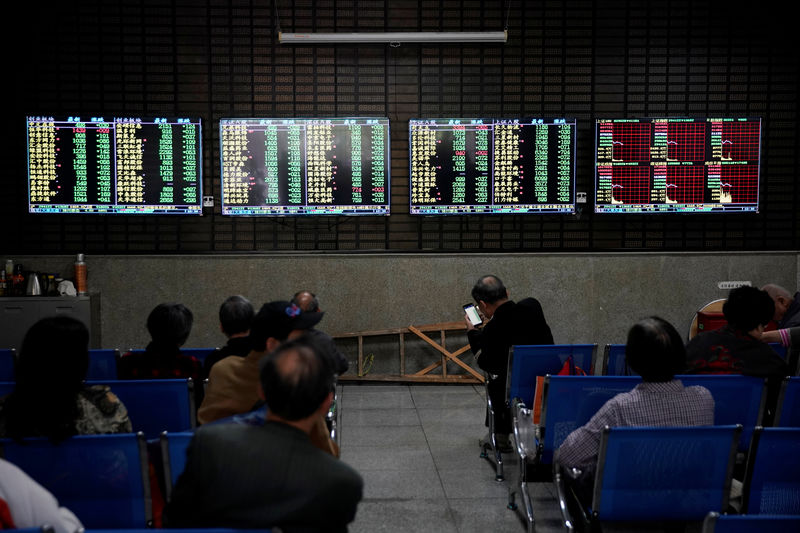By Andrew Galbraith and Noah Sin
SHANGHAI/HONG KONG (Reuters) - Chinese shares and the yuan strengthened on Friday on signs Beijing and Washington might still be able to avert a trade deal collapse, though confidence was fragile less than an hour before a planned U.S. tariff hike on Chinese goods takes effect.
Chinese Vice Premier Liu He, U.S. Trade Representative Robert Lighthizer and U.S. Treasury Secretary Steven Mnuchin talked for 90 minutes on Thursday in Washington, and were expected to resume negotiations on Friday.
Higher tariffs on Chinese goods are set to take effect at 0401 GMT Friday. While Asian markets were higher, investor confidence is expected to remain fickle and driven by news headlines.
"Market sentiment has improved following the progress of the latest round of Sino-U.S. trade talks, leading to a rebound from recent falls," said Zhou Liang, founder of Shanghai Minority Investment Management. "Although facing an escalating trade war, the market has been much stronger this year than last, reflecting the improved confidence of Chinese investors."
In late morning trade, the benchmark Shanghai Composite index was up 1.3 percent, having ended at an 11-week closing low in the previous session. But that was down from earlier highs that saw the index rise as much as 2.6 percent.
China's blue-chip CSI300 index was up 1.5 percent, having earlier risen more than 3 percent.
In Hong Kong, the Hang Seng Index was up 0.5 percent while H-shares added 0.6 percent.
The smaller Shenzhen index was up 1.8 percent and the start-up board ChiNext Composite index was higher by 2.1 percent.
China's yuan was up 0.1 percent at 6.8191 per dollar, despite China's central bank setting the midpoint of the currency's daily trading band at its weakest level in 3-1/2 months before the market open, at 6.7912 per dollar.
"The market is not in as much fear anymore. The scale of the rally depends on whether the tariff increases will still go ahead at noon, whether two sides agree to carry on talking, and whether the U.S. president will meet with Liu He," said a Shanghai-based trader at Chinese bank, commenting on the yuan.
The soft fix came after a tariff war-inspired sell-off in the spot market on Thursday, although traders had expected it to come in even lower.
The offshore yuan strengthened in early trade, but by late morning had given up all its gains to trade at 6.8430 per dollar. It had weakened to a low of 6.8363 per dollar on Thursday.
Zhou Hao, senior EM economist at Commerzbank (DE:CBKG) in Singapore said rises in the yuan were largely triggered by changes in the market sentiment.
"Trump is very fickle-minded. And investor sentiment had switched from overly optimistic to overly pessimistic," he said."Without these twists and turns, a tariff hike would be negative for the market, but now investors think that even if there are higher tariffs, as long as trade negotiations continue it's a good thing," he added.

Zhou said he did not think the rebound would be sustainable, and expects the yuan to trade in a range of 6.75 to 6.9 per dollar.